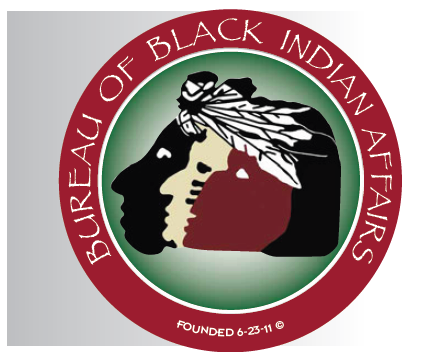
Photo: Creek Citizens Jeffrey Knight and Rhonda Grayson, both of Freedmen Descent
The descendants of the Muscogee Creek Freedmen—African-descended people once enslaved by Creek citizens and later freed under treaty obligations—have been engaged in a long, difficult fight for recognition and full citizenship within the Muscogee (Creek) Nation. Their struggle reflects a larger battle faced by Freedmen across the Five Tribes, who continue to demand that the promises written into post–Civil War treaties be honored.
In 1866, the United States signed treaties with the Cherokee, Chickasaw, Choctaw, Seminole, and Creek Nations. These agreements mandated the emancipation of enslaved people and guaranteed their descendants equal citizenship rights within the tribal nations. For the Muscogee Creek Freedmen, that meant membership, voting rights, access to healthcare and housing programs, and participation in cultural and political life. Over time, however, these rights were stripped away or diminished, leaving Freedmen descendants in a liminal state—connected by history, blood, and culture, but denied full recognition
The fight for citizenship took a major turn in recent years when the Muscogee (Creek) Nation Supreme Court ruled in favor of the Freedmen, affirming that they are entitled to equal rights under the Nation’s own constitution and the binding treaty of 1866. For many Freedmen families, this was a long-awaited victory—an acknowledgment not only of their legal rights but also of their belonging within the Muscogee community.
Yet, the struggle did not end there. Muscogee Chief David Hill has recently made headlines for publicly questioning whether he should have to uphold the Nation’s Supreme Court ruling. In comments that angered Freedmen advocates, Hill expressed disbelief that he should be compelled to recognize Freedmen as full citizens, despite the highest court in the Nation ruling otherwise. His stance has been seen by many as undermining the very principles of sovereignty, self-determination, and justice that the Muscogee government is supposed to uphold.
Hill’s remarks have drawn sharp criticism, not only from Freedmen descendants but also from Indigenous and non-Indigenous allies who argue that disregarding the ruling sets a dangerous precedent. If tribal leaders can dismiss their own courts’ decisions, the stability of tribal governance and the rights of all citizens—Freedmen and non-Freedmen alike—are at risk.
The controversy has been further complicated by the support Hill has received from outgoing Seminole Nation Chief Lewis Johnson. Johnson, who has faced similar challenges in his own Nation regarding Freedmen rights, publicly sided with Hill, reinforcing the belief held by some leaders that Freedmen inclusion threatens tribal sovereignty. This alliance has heightened tensions, as critics argue that sovereignty cannot be used as a shield to deny treaty obligations or perpetuate racial exclusion.
Despite these setbacks, Freedmen descendants remain steadfast. Many continue to organize, testify, and share their stories, emphasizing that their fight is not only about legal recognition but also about healing historical wounds and reclaiming their rightful place within their Nations. They point out that Freedmen fought alongside Native citizens, preserved traditions, and contributed to the survival of their communities in times of hardship. Their erasure, therefore, is not only a legal injustice but also a distortion of tribal history.
As the debate unfolds, the Muscogee Creek Freedmen’s struggle echoes far beyond Oklahoma. It raises urgent questions about race, sovereignty, and justice—questions that strike at the heart of what it means to belong to a community built on shared history, resilience, and survival.

